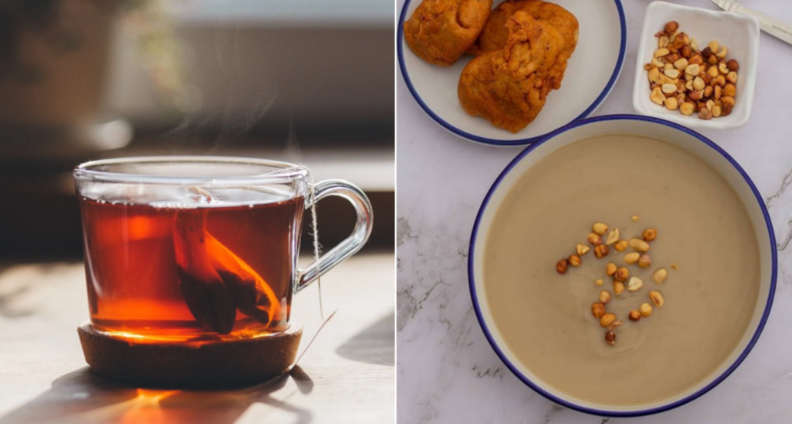Ghanaians are renowned for our love of eggs, often finding creative ways to incorporate them into our meals. Fufu and eggs have gradually become a staple in many chop bars, but tea is another popular favorite.
The nation spent an astounding $128 million importing tea in 2021, a testament to its popularity. In Ghana, tea is more than just a beverage - it's a cultural ritual, a social custom, and a way of life.

There is also a growing trend for weight reduction and "flat tummy" teas, contributing to this rising import bill.
It is no surprise that Ghana has a thriving tea culture, given the country's history as a British colony. Introduced by the British, tea customs and etiquette have seamlessly merged with Ghanaian traditions, creating a unique tea culture that blends both.

Analyzing import trends from the OEC reveals a steady climb, reaching an all-time high of $128 million in 2021, compared to $94.1 million in 2020. The accompanying graph illustrates this upward trajectory.
China dominates the supply chain, accounting for 81% of all tea imports. This heavy reliance makes the price of tea in Ghana susceptible to disruptions, such as shortages or price hikes from China, potentially impacting affordability for consumers.
The growing demand for tea in Ghana is multifaceted, driven by factors like the rising cost of breakfast beverage substitutes, the popularity of weight-related teas, and their widespread availability. This surge isn't confined to traditional black tea but encompasses a diverse range of tea products.
The intertwining of these factors underscores the profound impact on Ghana's tea culture and import bill and highlights the risks of reliance on a single source for tea.

A potential supply shortage or price hike from China could pose a challenge for individuals and the economy, as breakfast substitutes like koko and chocolate drinks become more expensive.
As the nation continues to develop, there is a need for diversification of the tea market to ensure the affordability and accessibility of tea, as well as the economic stability of the country.
Latest Stories
-
Ahafo RCC and Netcentric Campaigns donate sanitary pads, learning materials to 500 girls to promote menstrual hygiene
9 minutes -
Ghana showcases clean energy progress with a visit to an innovative e-bike manufacturer
16 minutes -
Volta Regional Minister deepens stakeholder engagement in Ketu South, inspects site for modern market project
32 minutes -
Inspired by her late mother, Asante Mampong businesswoman champions grassroots development
33 minutes -
WiLDAF launches empowerment initiative for women agri-food traders along Ghana-Togo border
38 minutes -
Bryan Acheampong camp unfazed by 60 MPs show of support for Dr Bawumia – Aide
40 minutes -
NPP needs a strong party to produce a president, not just a flagbearer – Patrick Boamah
53 minutes -
Fitch Solutions revises Ghana’s average inflation in 2025 to 17.2% – Fitch Solutions
59 minutes -
Fitch Solutions revises Ghana’s growth rate upwards to 4.9% in 2025
1 hour -
Africa World Airlines expands regional operations to Ouagadougou from July 1
1 hour -
The 60 MPs believe Bawumia is NPP’s best bet for 2028 – Dominic Nitiwul
1 hour -
Frederick Asare parts ways with Asante Kotoko
2 hours -
97% of agencies faced major creative campaign challenges -PMI Survey
2 hours -
Yaw Nsarkoh calls for overhaul of political parties to safeguard Ghana’s democracy
2 hours -
NPP vows to enforce discipline ahead of January 2026 presidential primary
2 hours

